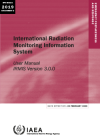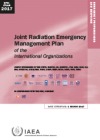The Incident and Emergency Centre is the global focal point for international emergency preparedness, communication and response to nuclear and radiological incidents and emergencies, regardless of whether they arise from accident, negligence or deliberate act. It is the world’s centre for the coordination of international emergency preparedness and response assistance.
Incident and Emergency Centre
The IAEA established the IEC in 2005 in response to an increased use of nuclear applications coupled with heightened concerns over the malicious use of nuclear or radioactive materials. While emergency response capabilities have existed within the IAEA since the conclusion of the Convention on Early Notification of a Nuclear Accident and the Convention on Assistance in the Case of a Nuclear Accident or Radiological Emergency, the decision to create an integrated Centre was taken to provide round-the-clock assistance to Member States in dealing with nuclear and radiological events, including security-related threats, by coordinating the efforts, contributions and actions of experts within the IAEA, Member States and international organizations. The IEC is also the custodian of the IAEA’s Incident and Emergency System (IES).
The work of the Centre focuses on four areas: IES Preparedness; IES Operations; Member States preparedness; and emergency communications and outreach.
The IES Preparedness Group maintains the arrangements and infrastructure in the IEC, as well as the preparedness of the IAEA’s Incident and Emergency System, which includes training classes, emergency response exercises and on-call responsibilities.
The IES Operations Group supports the operational implementation of the IAEA’s response roles during nuclear or radiological incidents and emergencies, in line with the Convention on Early Notification of a Nuclear Accident and the Convention on Assistance in the Case of a Nuclear Accident or Radiological Emergency. This includes maintenance of the IAEA Response and Assistance Network (RANET) and deployment of IAEA assistance missions on request.
The Member States Preparedness Group assists IAEA Member States in developing, maintaining and enhancing their emergency arrangements by developing safety standards and practical guidance, supporting Member States in their implementation, providing education and training, and conducting Emergency Preparedness Reviews (EPREVs).
The Emergency Communications and Outreach Group develops guidance and advice for Member States on public communication in nuclear or radiological incidents and emergencies, and implements IEC outreach activities.








